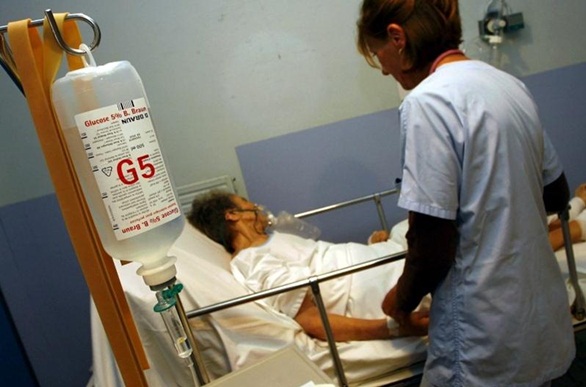This week saw the end of the four hour wait for hospital Accident and Emergency (A&E) services in Britain: our politicians just haven’t realised it yet.
The last 48 hours have seen possible the most banal exchange of healthcare statistics during this parliament. Labour’s opposition health spokesperson Andy Burham and Prime Minister David Cameron were at loggerheads over claims the latter had misreported recent changes in A&E times, which a blog suggests was the case.
Four hour waits have become so entrenched in the minds of politicians that this episode showed them up for what they are: a political target not based in evidence or experience that serves only to let politicians argue. It has become almost the sole marker of success or failure by A&E departments by which they are congratulated or fined. Given that shortages of staff are one reason why the target is often failed, fining the trusts seems a bit odd to say the least.
Money and staff are not the only reasons why people wait in A&E though. Politicians were arguing over the difference in waiting times for those patients waiting for admission, and for those waiting to be assessed in the first place. This is all very nice until you realise A&E has zero control other either of these.
There is only one triage nurse on at a time; this does not change. Even if it did, people would simply wait longer in the waiting room if they were triaged faster. Nursing time would be wasted for no reason at all. Patients are only assessed and treated properly after triage, not during it.
Once a patient is seen by an A&E doctor and they are to be admitted, a complex admission starts. This is an incredible experience for anyone to enjoy. Nurses run up and down the hospital with clipboards looking for empty beds as not every ward reliably reports when a bed is ready. Patients may be stepping down from the intensive care units, elective patients may suddenly need social or medical input and hence will not be discharged, and of course porters and nurses will be on mandatory breaks courtesy of the EU’s working time directive. So A&E has no control over getting patients to wards.
There has never been clinical evidence to support the four hour wait which was brought in by Labour in 2002. Since then the non-English speaking population has soared, making prompt assessments much more difficult. We are getting older and more frail as a nation so consultations often take longer and social needs mean more cases are admitted rather than discharged and again this raises mean waiting times.
Finally, given that at least one in four people should see their doctor rather than A&E, anyone waiting fix or six hours for a non-urgent appointment, perish the thought, is still doing far better than those who use the system properly and wait a week to see their General Practitioner. Given that an A&E attendance costs about £150 and a GP appointment about £20-30, it isn’t really a surprise that primary care has no money and A&E has no time to see patients according to their needs.
The four hour waiting time target has been a catastrophic failure. It has undermined professionals and turned them into civil servants. There are a shocking number of patients admitted to wards in the last 20 minutes of their wait – a complete fudge to avoid those fines. Patient care is put behind a government target and people waiting for treatment cannot get this while in transit.
Little do people know that clinical decision units and medical assessment units are used as warehousing for patients about to “breach” their target time to get around the target and that this often means patients are moved to less intensively monitored and managed environments than A&E. A whole new team of doctors sees patients on the Medical Assessment Unit and often only after several hours. In reality the four hour wait interrupts patient care and investigations rather than making them more timely.
When politicians are reduced to how, why and where this ignoble target can be fudged they have abandoned all focus on quality of care and efficiency of health care resources. There is no excuse to carry on with this charade.

COMMENTS
Please let us know if you're having issues with commenting.